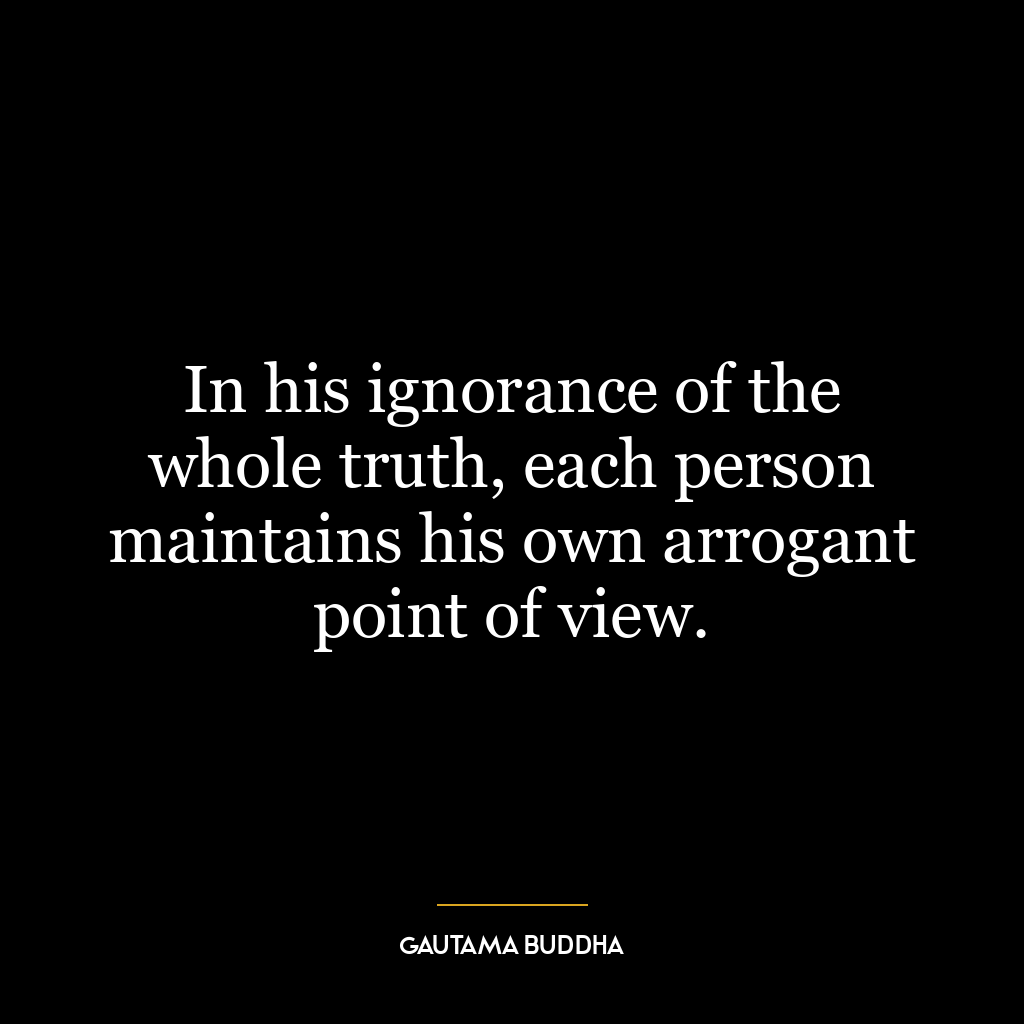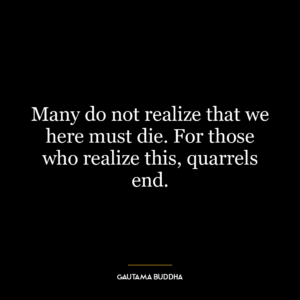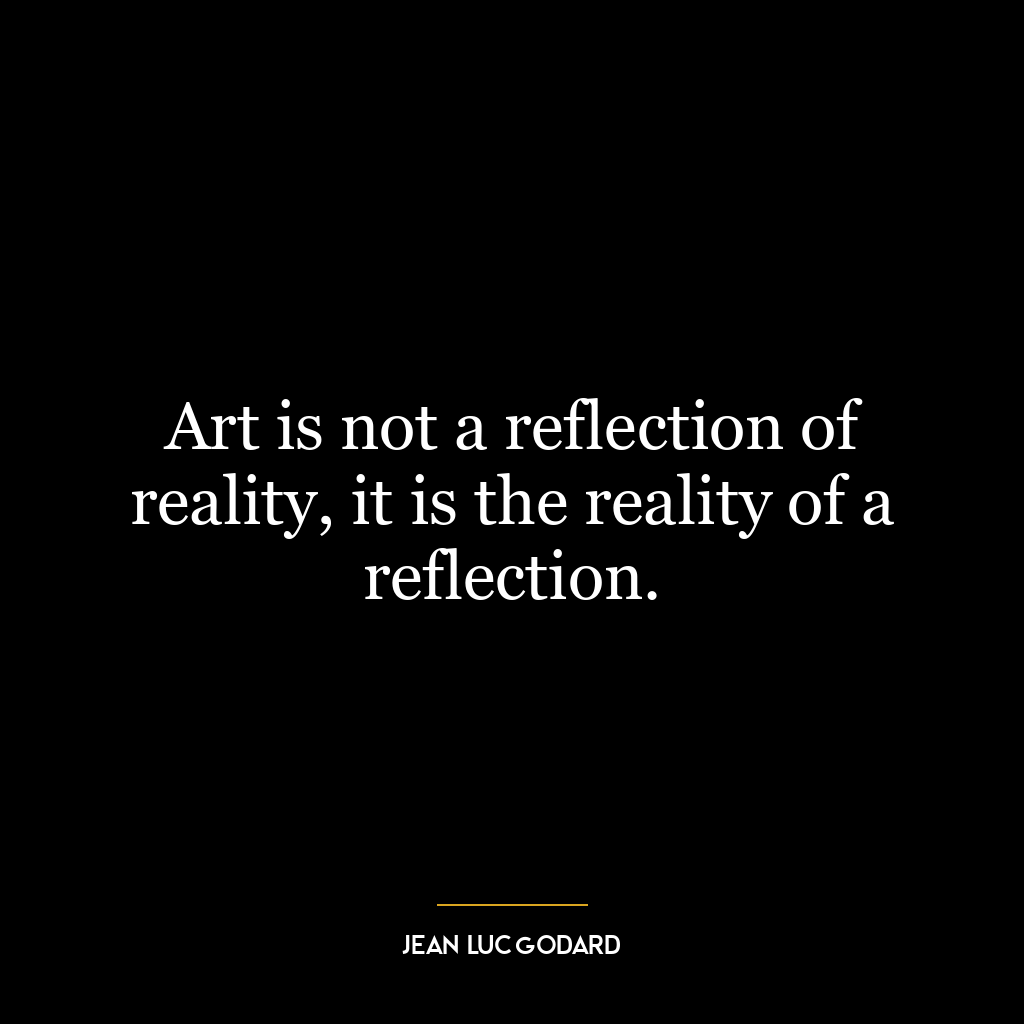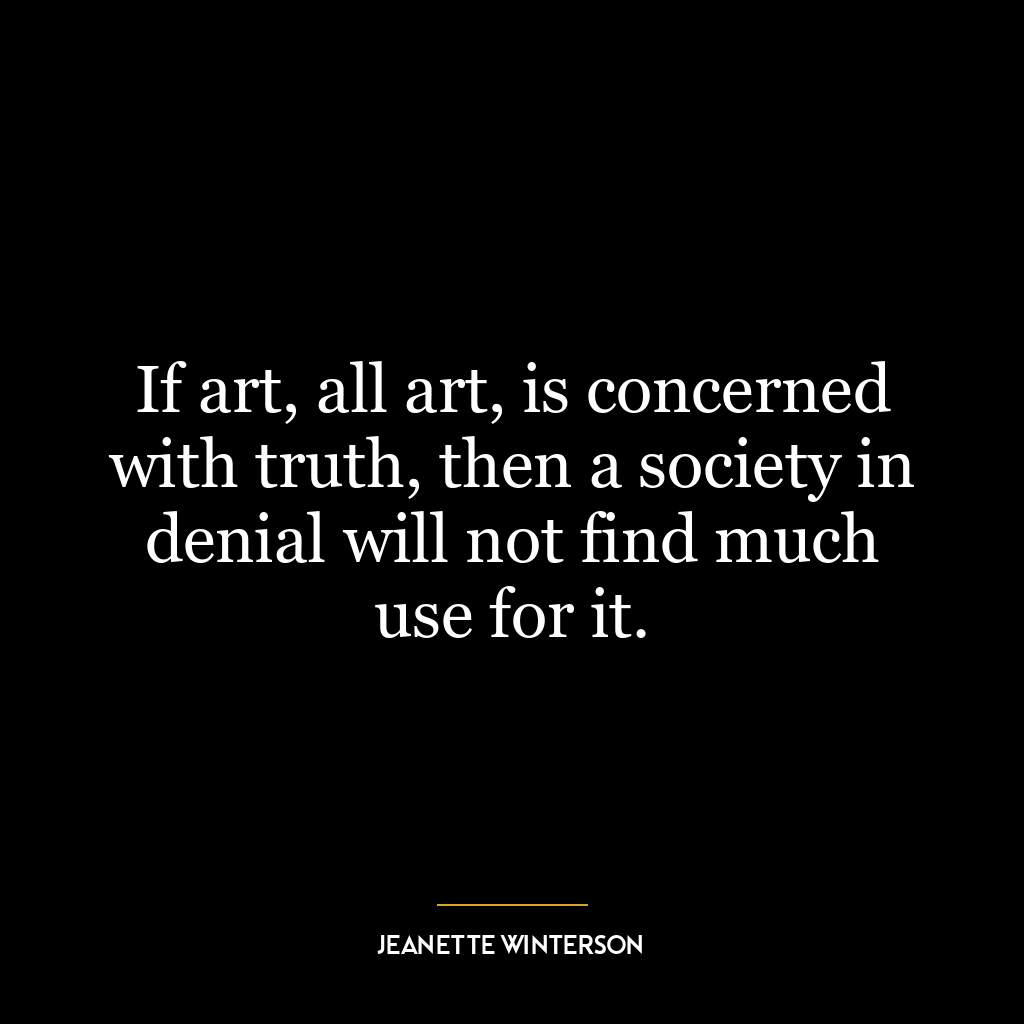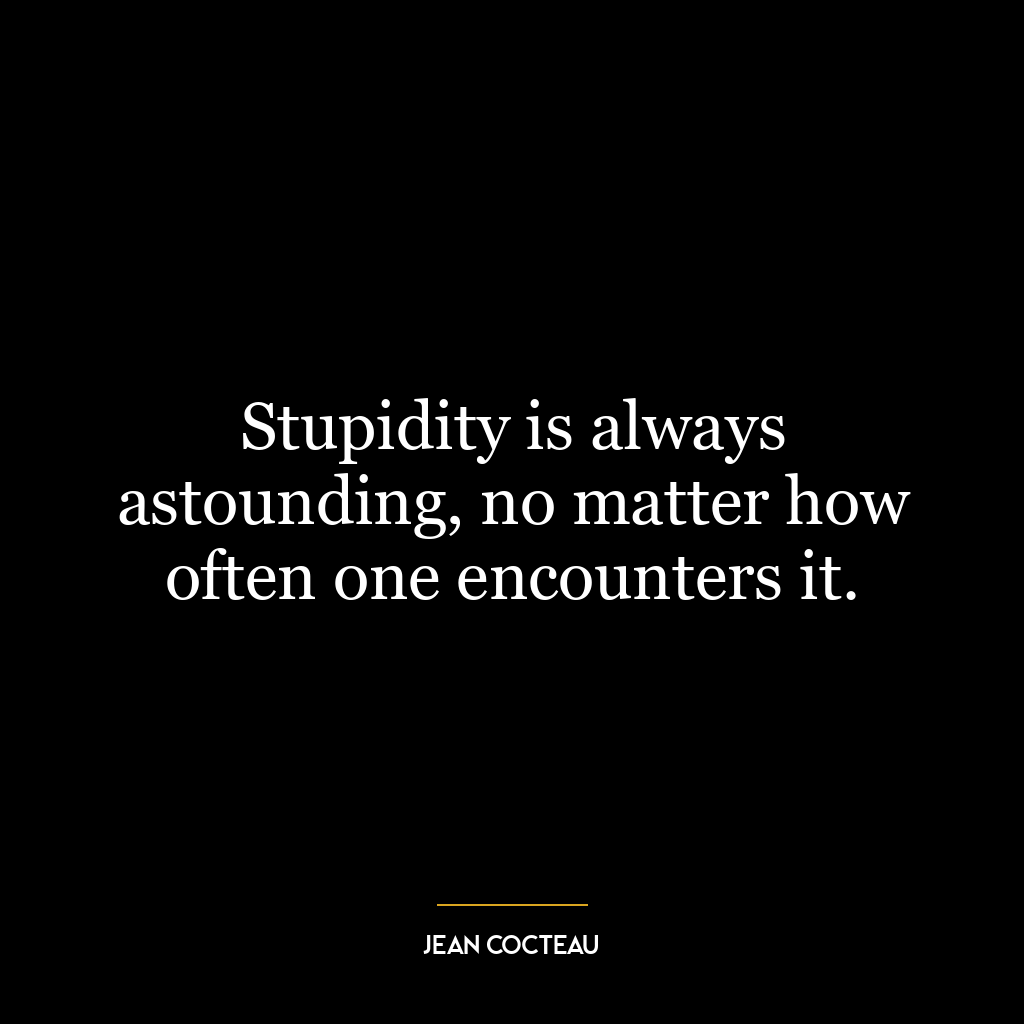In his ignorance of the whole truth, each person maintains his own arrogant point of view.
This quote speaks to the human tendency to hold steadfastly onto personal beliefs and perspectives, often without considering the entirety of a situation or understanding all relevant facts. It suggests that this behavior is rooted in ignorance, as one fails to recognize that their perspective is just one among many and may not encompass the whole truth.
The term “arrogant point of view” implies a sense of overconfidence or presumptuousness in one’s own understanding or interpretation, often leading to an unwillingness to consider alternative viewpoints. This arrogance can be detrimental as it blinds us from seeing things from different angles, thus limiting our knowledge and growth.
Applying this idea in today’s world could involve encouraging open-mindedness and humility. In an era dominated by social media echo chambers and polarized political landscapes, it’s easy for individuals to become entrenched in their own viewpoints while disregarding others’. By acknowledging our ignorance – recognizing that we don’t have all the answers – we can start opening ourselves up to new ideas, opinions, and experiences.
In terms of personal development, this quote serves as a reminder for continuous learning and growth. It prompts us not only to question our assumptions but also invites us into conversation with those who think differently than us. Recognizing our own ignorance can help foster empathy towards others’ perspectives which will lead not only towards individual growth but also promote tolerance within society at large.
Moreover, by maintaining less rigid stances on issues or ideas allows room for adaptability; a key aspect required for success in various facets of life such as career progression or relationship building where changing circumstances demand flexibility in thought processes.

